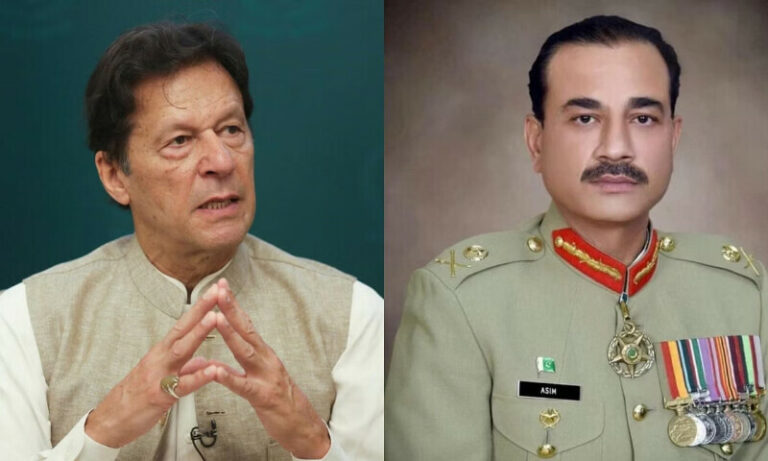PTI founder Imran Khan wrote his second “open letter” to the general of Army Chief Asim Munir on Saturday, complaining about alleged abuse in prison.
Previously, on February 3, Imran wrote to the Army Chief about his allegedly increasing distance between the military and the public. According to his letter, the Army had to reevaluate its policy to win the public after receiving the reasons and suggestions that Imran proposed to improve the situation.
However, security sources said the letter had not been received by the military and the media rejected reports of the existence of such letters. They argued that military facilities were not interested in receiving such letters.
In a letter posted on Imran’s X account today, he said: I’m in dead cells. I was completely locked up for 20 days.
“For five days, my phone was turned off and I was in full darkness. My exercise equipment and TV were taken away, and I was not even allowed to have a newspaper. They always put books on I’ll withhold. Aside from the last 20 days, I was locked up for 40 hours again. My sons have been forced to talk to me only three times in the last six months.”
He wrote “I wrote earlier with good intentions for national and national improvement, so the increasing gap between the military and people could decrease daily, but the response was given extremely frivolous and irresponsible.” I stated. .
Imran claimed that if public opinion was taken by them, 90% of the people would support the point of his previous letter.
The founder of PTI spoke at length about his criticism of recent legal and political developments in the country and the issues facing his party and workers.
“This all goes against our tradition, and this has led to a huge increase in hatred of the military among the people, and he repeated in line with his first letter.
Concluding his letter, Imran said: Return to constitutional boundaries, separate from politics, and fulfill assigned responsibilities. This task must be performed by the Army itself. Otherwise, this gap growth will become fault lines for national security conditions. ”


